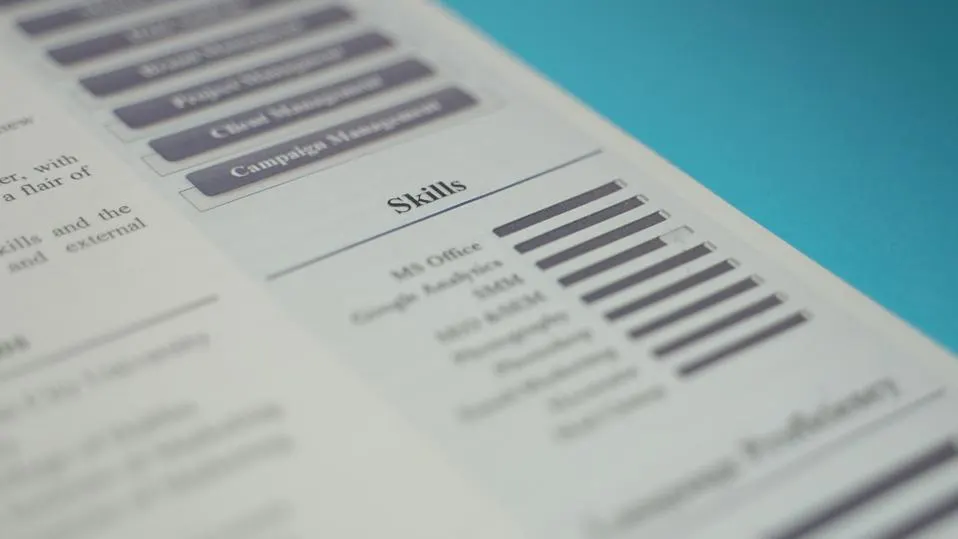The CV is a tool to present your experience, skills, and qualifications to the recruiters. A strong CV not only contains excellent skills, but they also need to be carried over effectively. However, skills are what separate you from other as you apply for the job. I’ve shown below how to shine a light on your skills, in such a way that the employer notices.
Identify Your Key Skills
However, before you turn your hands to your CV, it is advisable to begin to think the skills that are paramount in your job search. Soft and hard skills include communication, problem solving, and computer programming, graphic design, etc. Look at the job description to know which skills are required. This will enable you to preserve your CV as necessary for the job.
Group Skills into Categories
The better advice is to organize your skills into sensible chunks. Here is an example like ‘Technical Skills’, ‘Communication Skills’, or ‘Leadership Skills’. It does help with making your CV organized and easy to read. Consider each category your best skills, pertaining to the job you are applying for.
Use a Skills Section
Adding a “Skills” section is perhaps the best way you can accentuate your skills. Put it a little up from your personal statement/ work experiences. Some of these skills overlap with the job you are applying for. It makes the hiring manager quickly understand what you have to offer.
Be Specific About Your Skills
Instead of listed terms like “good communicator” or “team player”, give more specific instances of your skills. For instance, you can state, “Experienced in Microsoft Excel, used to making intricate financial models.” The more you specify, the clearer it is of your abilities. Don’t be in vague or broad statements that don’t say you are an expert.
Show How You’ve Used Your Skills
If you have been a part of any organization, then that is what they will want to see that you have used your skills in real life situations. List them with no show of how you’ve used them to get results. If you are explaining your customer service skills, say “Handled customer inquiries, increasing the mark from 85% up to 100%.” This in a way shows you can make an impact using your skills.
Match Skills with Job Requirements
Every job requires different skills. Job description should be carefully read to know which skills are the most important. Then, craft your CV writing service in Dubai such that it shows these skills. For instance, if you are required to be familiar with a particular item of software, then put it on your CV. It increases your chances of being noticed: Choosing your skillsets to be in line with what the employer’s needs are.
Use Action Verbs
Strong action verbs are also used when describing how you used your skills. If you’ve used any of the words like “created,” “developed,” “led,” or “managed” around your responsibilities, you have done so actively. Using action verbs gives your CV a little dynamism and suggests you have a measure of initiative. Always avoid being in passive language because it diminishes how powerful your talent is.
Provide Evidence of Your Skills
Evidence that you really have the skills you claim is valuable to employers. Instead of listing your non skills, back them up with examples. If you say you are skilled in project management, mention what work you did leading a team to finish a project earlier than planned. This further supports your claims by having concrete evidence.
It should include Hard and soft skills both.
Both hard and soft skills are looked be an employer. Skills like these are referred to as hard skills, and they share certain common characteristics of being specific and teachable. Personal traits like communication, leadership and problem solving are the soft skills. It’s important to showcase both. Like that, you can mention, “Fluent in Spanish,” along with “Excellent interpersonal skills.”
Use Bullet Points for Clarity
One way of reading your skills is in bullet points, while listing your skills as such makes them easier to read, and points out which are the most important. Instead of anything a long paragraph, break your skills into bullets with short points. It makes your CV more readable and allows hiring manager to quickly check what is included in your qualifications. The most important point is that they make your CV look organized.
Include Certifications or Training
The certifications or training you have completed should be mentioned. For instance, if you have a certification from a software program like Adobe Photoshop or Project Management Professional (PMP) you can place it under ‘Certifications’ section. This also serves as more proof of your expertise.
Update Your Skills Regularly
Your CV should be updated regularly and if your skills change over time. Track courses, training or on the job experience that gives you knew skills. Your CV should be regularly updated so it reflects your current skills and helps you beat other candidates in the market.
Conclusion
The CV is your best opportunity to highlight your skills effectively so that you could get the job you want. You can make an impression with key skills, in line with the job description, backed by evidence of your skills. Be organized with your skills, speak in specific examples, update your CV. Your CV will be a well-crafted one as it will help you stand out and increase your chances of success.


